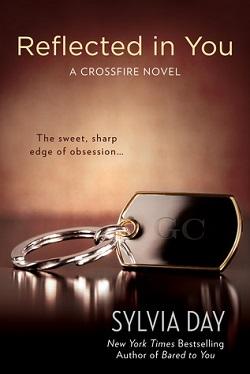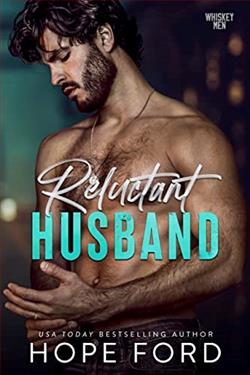In the span of seconds, I think of a dozen follow-up questions. Archie doesn’t give me time to ask a single one.
“I was as surprised as you are now,” he says. “For one, he was married, although in those days and in my limited experience, that was usually the case. It’s not like today, which allows for slightly more freedom. Back then, it had to be kept secret. Especially for someone like me. I was barely eighteen. One wrong move and my whole life could have been ruined.”
Archie tells me how he and Ricardo met in secret, sneaking away whenever they could. It wasn’t easy. Ricardo shared the cottage with his wife. Archie lived in one of the rooms over the garage, which is where they usually met.
“We called it our love nest.” Archie allows himself a brief smile of fondness before it fades into a frown. “It’s where we were the night of the murders.”
It turns out Berniece had been wrong about her husband trying to throw her off his trail by going to the garage first before sneaking into the mansion through the front door. Then again, Berniece had been wrong about many things, including who her husband was really having an affair with.
“Since everyone had been given the night off and Berniece had gone to the movies, we knew we had a few hours just to ourselves,” Archie says. “But Ricardo was upset. He said Berniece confronted him about having an affair with Lenora.”
Lenora chimes in. “Which was utterly ridiculous. I didn’t even know who he was.”
“She told him he had to end it,” Archie adds. “Aftertheyblackmailed Winston Hope. Ricardo wanted nothing to do with the plan. It was wrong, both morally and factually, and he feared it would eventually lead to the truth about the two of us getting out. A disaster for both of us. But he had a plan of his own. He asked me to run away with him.”
“That night?”
“Immediately. He wanted to head west. Maybe to California. He said he heard people there were more tolerant. He said there was a chance we could be happy there. But I knew better.” Archie shuffles to a stool. He sits, slumped, as if the sad memories he’s recalling are literally weighing him down. “Running away is never as easy as it seems. I know because I’d already done it, fleeing a family who hated me because I was different, because I wasn’t like most other boys. But I found my way here—and to Virginia.”
“Did she know?” I say.
Archie responds with a nod. “It’s one of the reasons I loved her so much. She didn’t judge me. Or shame me. Or, thank goodness, try to change who I am. She simply accepted me. And I couldn’t leave her. Not when she was pregnant. Not when she needed me. Because that’s another thing Ricardo told me—that Berniece had spotted her the night before and knew of her condition. That meant everyone would soon know. When that happened, Virginia would need me more than ever.”
“So you stayed,” I say, meaning not just that night but all the ones after it. Decades of nights in which he’d sneak into Virginia’s room to check on her and wish her pleasant dreams.
“I stayed,” Archie says. “Ricardo left. I never heard from him again.”
The sadness of his story leaves me convinced that Hope’s End is cursed in some way. Maybe it was merely bad luck. Or perhaps because of Winston Hope’s hubris in building a mansion at the edge of a cliff despite knowing it was only a matter of time before it crumbled into the ocean. Whatever the cause, no one here got the life they wanted. No one was granted a happy ending.
Not Archie. Not Lenora. And certainly not Virginia. Yet despite now knowing all their tragic tales, one question remains unanswered.
“Then who was Ricky?”
“One of the local boys hired for seasonal help,” Archie says. “A bunch of them came and went all the time. Virginia never told me his last name. Or his first. She just used the nickname, making it impossible to track him down after the murders. I suspect by that point, he didn’t want to be found.”
A strange mix of emotions swirls through me. There’s disappointment from the reality that Ricky wasn’t the person I assumed he was. In fact, he wasn’t anyone important at all. Just a boy who took advantage of a girl so desperately lonely she gave away her innocence and, ultimately, her freedom.
But Virginia isn’t blameless. I’m angry at her. Not for being naïve. She was just a child when Ricky came along. She didn’t know any better. But what she did to her parents was so unimaginably terrible that I simultaneously hate her, feel sorry for her, and, despite everything I’ve learned tonight, still hold out hope that Archie and Lenora are wrong.
I suppose that makes me the naïve one.
“The murders still could have been committed by someone other than Virginia, right?”
“There was no one else it could have been, Kit,” Archie says with a sigh. “And I know it changes your perception of her. I’ve spent a lot of time wondering why she did it. But I made peace with the fact that I’ll never know. I might not approve of what Virginia did, but it doesn’t make me hate her. It’s possible to love someone while hating something they’ve done.”
“I’m still trying to come to terms with it,” Lenora says as a look passes between us. I take it to mean she knowsIknow it was her who used the typewriter in the middle of the night, filling a page with the same accusation.
It’s all your fault
I’m stuck somewhere in between, resigned to the fact that Virginia murdered her parents yet still clinging to one last bit of hope.
“But why are you absolutely certain it was her?” I say.
“Because I saw her,” Lenora says. “Later that night, after Miss Baker departed with the baby, I heard Virginia leave her room. I went to see where she was going and saw her descending the Grand Stairs.”
“That doesn’t mean she’s guilty.”
Lenora picks up her wineglass. Before emptying it, she says, “It does when Virginia was carrying a knife.”















